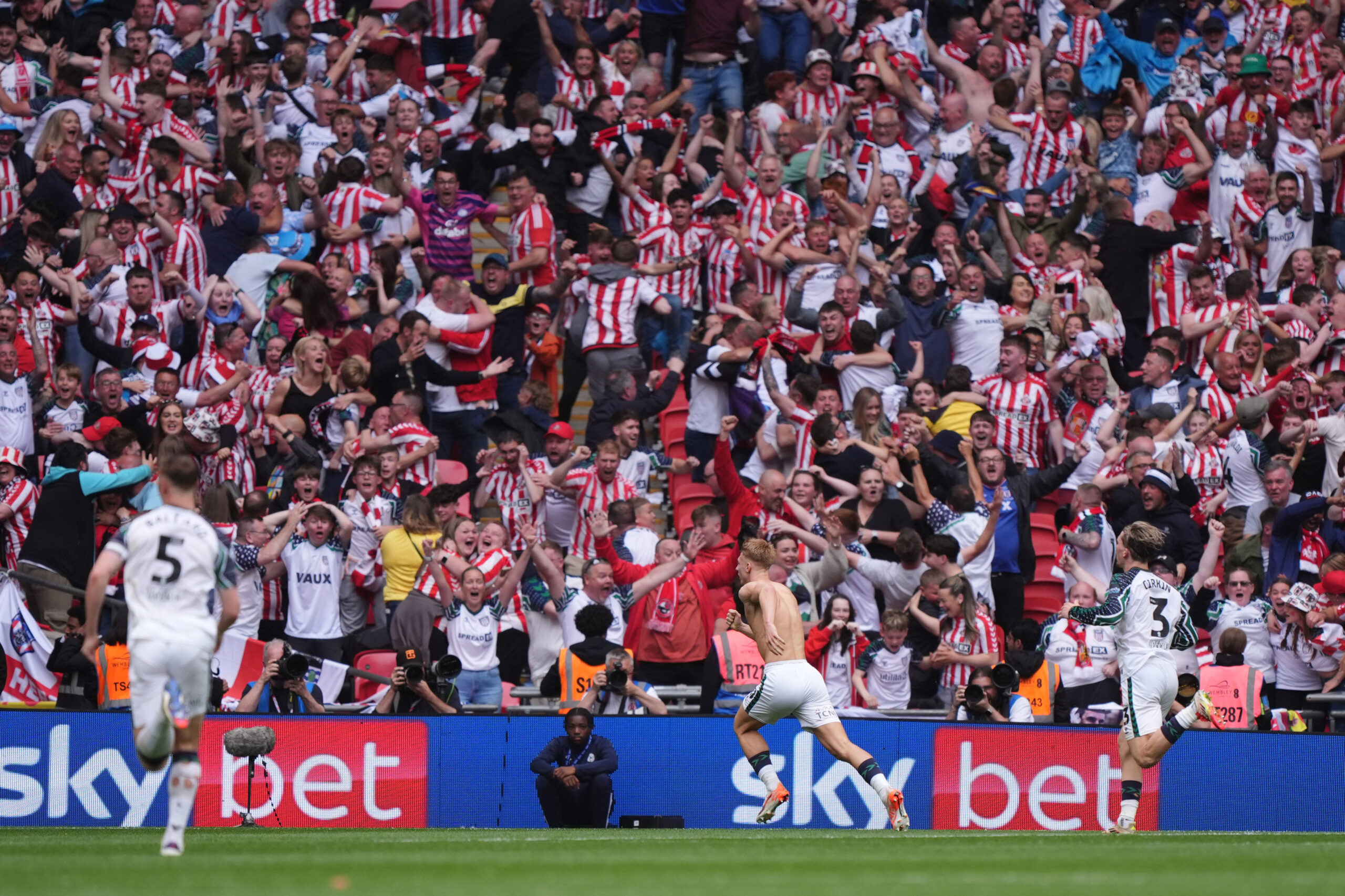No, it’s still not a derby.
Owing a lot to geography, there have been somewhere in the region of 4 billion players who have turned out for both Sunderland and Middlesbrough, and weirdly, a good chunk of those seem to have bounced between the two on multiple occasions; we can only assume there was a special deal on return tickets back in the 1930s.
So, in tribute to just how far back the Boro links go, we’ll take a look at a player of genuine class from our most recent stint in the Premier League, and another that literally none of us will have seen kick a ball, but who was a history maker in the game.
Bolo Zenden
It’s not very often that the majority of Sunderland fans are in total harmony when it comes to player opinion. Whether it’s because you don’t like one player for wearing under armour sleeves, or another for his daft hairstyle, there’s always a reason. With Bolo Zenden however, Wearside was united in collectively sitting up and saying “crikey, he’s still a bit good” when we first had the pleasure of seeing him gliding around in red and white.
Zenden’s career needs no fluffery put to it, he exclusively played for giant, historic clubs of Europe, and also Middlesbrough. Coming through at PSV in his homeland, he won the Eredivisie in 1997 before moving to Barcelona and winning La Liga in 1999. A move to Chelsea in 2001 would be the first trophyless move of his career, before a loan move to Boro which saw him lift the League Cup in 2004, the first trophy in the history of the club.
The loan was made permanent in 2004, as Zenden became a key component to Boro’s squad of mercurial talents of the mid noughties, including the likes of Gaizka Mendieta and…Chris Riggott. Bolo’s form for Boro was notable enough that in 2005 he moved to Liverpool, where he won himself the UEFA Super Cup and a Champions League runners-up medal.
Playing time was hard to come by at Anfield though, and after two years he was released from his contract, which freed him up to join Marseille. Two years in France passed by when Zenden announced that he wanted to end his career back in England, and so joined Sunderland in October 2009.
Zenden’s quality was simply absurd. He may have been 33 by the time he signed, but he oozed class with every touch. A season of assured, calming performances was capped off by Zenden scoring one of the best goals the Stadium of Light has seen, hitting a sublime left-footed volley in our 3-1 win against Spurs. A one-year extension was signed, with Zenden now also appointed as club captain.
Bolo’s second season at Sunderland is of course immortalised by his supreme dad dancing skills when joining in with Asamoah Gyan’s celebration as we mullered Chelsea at Stamford Bridge. The Dutchman signed off his time in red and white by scoring in another 3-0 win, this time away at West Ham on the final day of the 10/11 season, having already announced that he would leave the club at the end of his contract.
I still find it bizarre that no one took Zenden on for another year after his departure, as despite his advancing years, he was in better nick than most of our remaining squad; but that was it for Bolo, although he never officially announced retirement, he wasn’t signed by another club after leaving Sunderland. Since retirement, we briefly saw Zenden take in a spell as assistant manager back at Chelsea, before a similar role with PSV’s youth team in 2013.
| Joined | Left | League Apps | League Goals | |
| Sunderland | 2009 | 2011 | 47 | 4 |
| Middlesbrough | 2003 | 2005 | 67 | 9 |
Alf Common
This one goes somewhat beyond “ask your da” territory, admittedly, but Alf Common’s name goes down in footballing history as the very first player to have commanded a fee of £1,000.
Sunderland-born Common was a fairly prolific forward who came through at his hometown club at the turn of the 20th century, scored 6 in 18 then left for Sheffield United a year later, with whom he won the FA Cup in 1902. Another hatful of goals saw him return to Wearside in 1904, where he helped himself to another 6 goals for another single season.
Then came the big moment, when Middlesbrough, desperate to avoid relegation to the Second Division, paid £1k for his services in February 1905. Common scored on his debut (against former club Sheff Utd), and Boro ultimately survived that year, success all round. Common score 58 times in the league for Boro before moving on to Woolwich Arsenal (yes, it really was that long ago), where he continued his form with another 23 in 77 games.
The final move of his career came in 1912 as he moved back up north to Preston, where he promptly won the Second Division that same season.
Between his last spell at Sunderland and his move to Boro, Common also won three England caps, scoring twice in the process. A Division One runners up medal with his hometown club, an FA Cup medal and a Second Division title, not a bad way to wrap up a career back when football was truly unpredictable.
After retiring in 1914, Common fulfilled what would go on to be the classic footballer stereotype of the 20thcentury, and became a landlord of several pubs in Darlington.
| Joined | Left | League Apps | League Goals | |
| Sunderland | 1900, 1904 | 1901, 1905 | 38 | 12 |
| Middlesbrough | 1905 | 1910 | 168 | 58 |






























